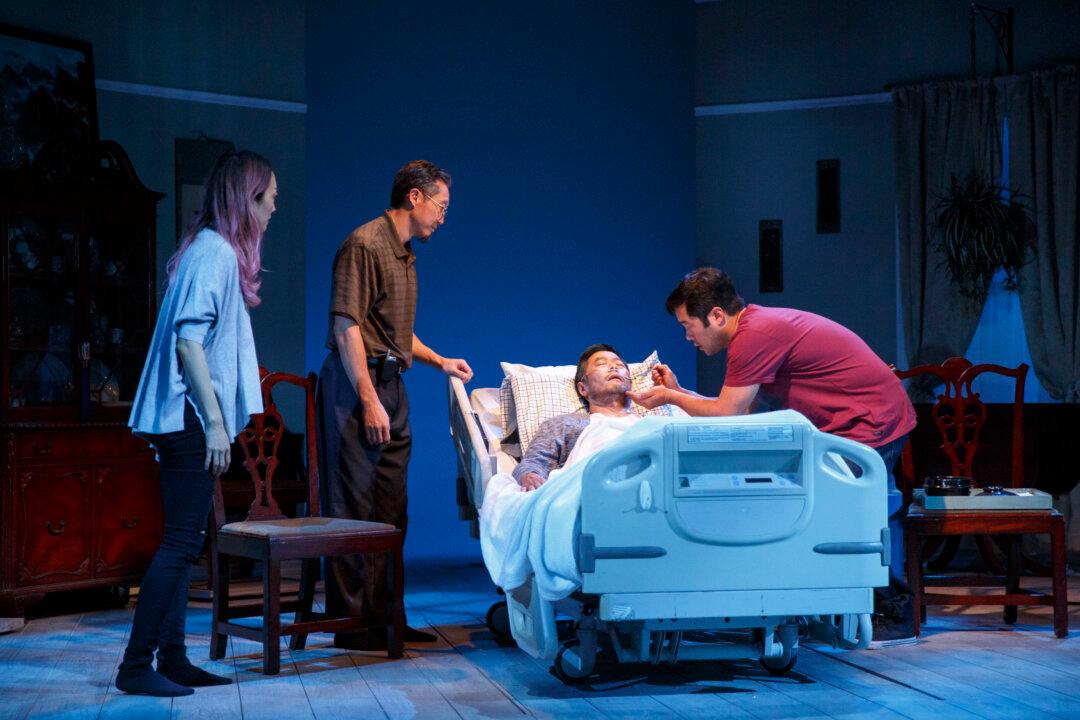NEW YORK—Can the aroma of a bowl of soup tear through one’s soul, reviving memories of profound pain or pleasure? Could a pastrami sandwich be the best thing one has ever eaten? Julia Cho’s remarkable play, “Aubergine,” will have you thinking so.
We first meet Diane (Jessica Love), a foodie, who describes her love of food and her intense, almost ridiculous search for the very best, the most elegant, the most unique of gustatory satisfaction, even traveling many miles to find it. However, she most remembers how her own father had made her a wonderful pastrami sandwich, the odors of melting butter and pastrami wafting through the air in the middle of the night.
The scene shifts to the heart of the play.
Interspersed throughout the play are descriptions of meals prepared in the past.





